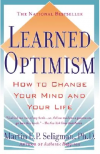Most lifters have a higher "Gym max" than "Contest max".
Poorer Lifters
Theses lifter have a higher Gym Max than Contest Max. That in part because...
1) Their Gym Max would never pass in a sanctioned meet,
In the gym these Powerlifter are performing Quarter Squat, having their butt come off the butt come off the bench or hitching their deadlifts.
2) They choke under pressure, as you stated.
Good/Great Lifters
1) They lift like they train. In other word, their lifts are spot on in the gym which carries over competition.
2) They rise to the occasion, as Steve stated.
You may not be able to control your environment but you can control how you react to it and keep a cool head.
Excuses For Better Gym Lift Than Competition Lifts
All the reason you listed for why many individual don't perform as well in competition as in the gym fall more into the, "It was my fault" excuses category. Don't do that.
Lean to control your environment, don't let it control you.
As per Yogi Berra...
“Baseball is 90 percent mental. The other half is physical.
Learned Optimism

This an excellent book that goes into making excuses; owning up to bad choices and learning how avoid or make better choices when presented with the same situation or one similar the next time.
Playing Your Best Game All The Time

This examines how the mental aspects of how to play your best game; so control your environment and perform your best
Podcast Episode #08: Dr. Judd Biasiotto | StrongFirst
Dr Craig Marker has a great interview with Dr Judd Biasiotto on the mental side of the game.
Biasitto was one of the greatest 132 lb Powerlifters of his era.
Billy Martin
Martin was a good Major League Baseball Player and great Coach.
As told his players, "It's better to fall on your face going for the ball that fall back on your butt waiting for it to come to you."
Summary
1) Good/Great Athletes perform their best in competition.
2) Poor Athletes perform their best in the gym; they cannot transfer it to competition, falling short.
The Mental/Emotional Aspect
3) Good/Great Athletes learn, adapt to their environment
4) Poor Athletes allow their environment to control them.


